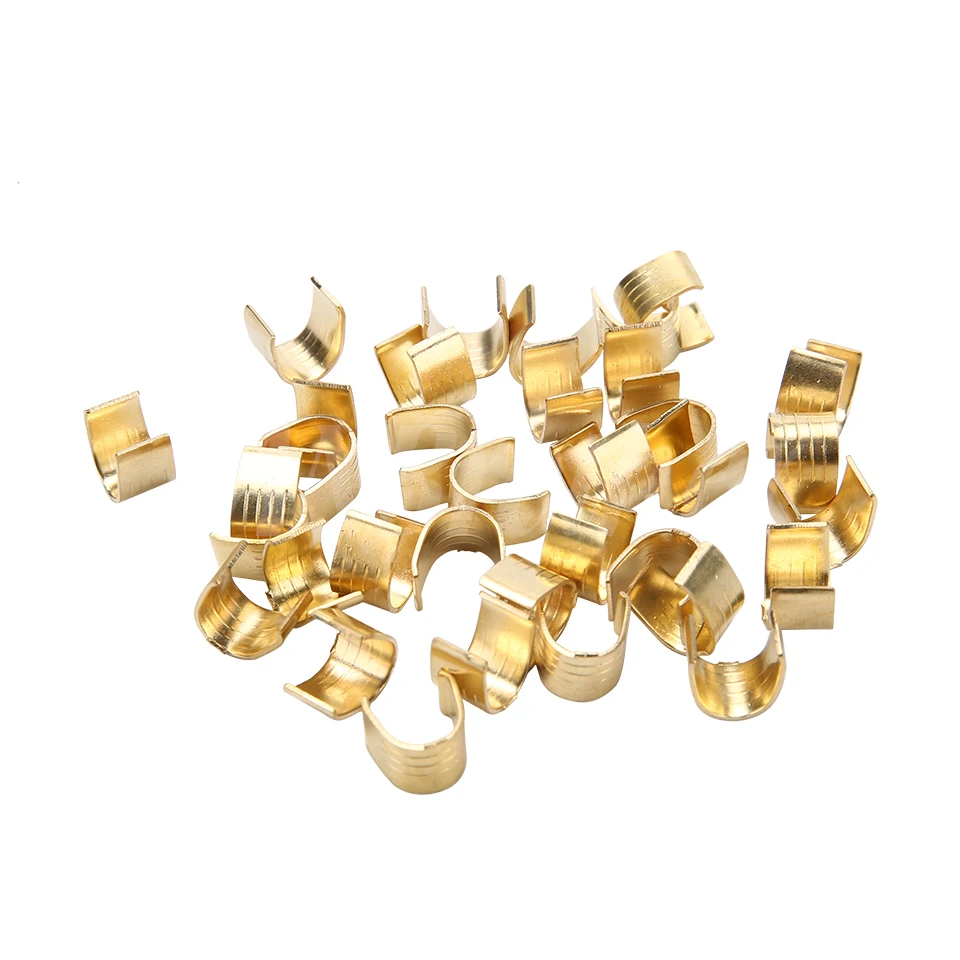Outline
- Introduction
- The allure of gold in technology
- Purpose of the article
- What Are Gold Plated Connectors?
- Definition and common uses
- Different types of connectors that use gold plating
- Why Gold?
- Properties of gold in electronics
- Comparison to other materials used in connectors
- How Do Gold Plated Connectors Work?
- The role of gold in signal transmission
- How gold plating enhances connector performance
- Gold vs. Other Metals
- Copper vs. gold: Which is better?
- Silver vs. gold: Pros and cons
- Nickel vs. gold: When is nickel preferred?
- Durability and Longevity
- How long do gold plated connectors last?
- Impact of environmental factors
- Cost Considerations
- Why gold plating increases the cost
- Is the extra cost worth it?
- Real-World Applications
- Where gold plated connectors are commonly used
- Examples in consumer electronics, audio equipment, and more
- The Myth of Superior Performance
- Do gold plated connectors really make a difference?
- The placebo effect in audio and video quality
- Testing and Evidence
- What do the studies say?
- Industry experts weigh in
- When Gold Plated Connectors Might Be Beneficial
- Scenarios where gold plating is advantageous
- Specific use cases
- Common Misconceptions
- Debunking myths around gold plated connectors
- Marketing hype vs. actual benefits
- Environmental Impact
- The environmental cost of mining and using gold
- Are there eco-friendly alternatives?
- Maintenance and Care
- How to care for gold plated connectors
- Tips for ensuring longevity
- Conclusion
- Summarizing the pros and cons
- Final verdict on whether gold plated connectors work better
- FAQs
- Are gold plated connectors necessary for home audio systems?
- Can gold plated connectors corrode over time?
- How do I know if my connectors are truly gold plated?
- Do gold plated connectors improve HDMI quality?
- Are there better alternatives to gold plated connectors?
Introduction
When it comes to electronics, especially in the realm of audio and video, gold plated connectors are often touted as the ultimate solution for better performance. But do they truly live up to the hype? The allure of gold in technology isn’t just about aesthetics or luxury; it’s often marketed as a way to enhance signal transmission and improve the overall quality of your equipment. In this article, we’ll delve into whether gold plated connectors actually work better, examining the science, the myths, and everything in between.
What Are Gold Plated Connectors?
Gold plated connectors are exactly what they sound like: connectors that have a thin layer of gold applied to their surface. These connectors are found in various electronic devices, from HDMI cables to audio jacks and even computer components. The primary purpose of this gold layer is to prevent corrosion and ensure a reliable connection over time. Given gold’s excellent conductivity and resistance to tarnish, it’s a popular choice in high-end electronic equipment.

Why Gold?
Gold is a highly conductive metal, meaning it allows electricity to pass through it with minimal resistance. This property is crucial in electronic connectors, where a strong and stable signal is essential. Unlike other metals, gold does not oxidize or corrode easily, ensuring a longer-lasting connection. Additionally, gold’s softness allows it to form tight connections, which can be beneficial in maintaining a stable signal over time.
How Do Gold Plated Connectors Work?
The primary function of gold plating in connectors is to improve signal transmission. Gold’s excellent conductivity means that signals—whether they’re audio, video, or data—can pass through with minimal loss. This results in clearer sound, sharper images, or faster data transfer, depending on the application. The thin layer of gold also helps to protect the underlying metal from corrosion, which could otherwise degrade the quality of the connection.
Gold vs. Other Metals
Copper vs. Gold: Which Is Better?
Copper is another highly conductive metal and is often used in electrical wiring and connectors. However, copper oxidizes quickly when exposed to air, which can lead to poor connections over time. Gold, on the other hand, resists oxidation, making it a more durable choice for connectors. That said, copper is still widely used due to its lower cost, and in many cases, the performance difference between copper and gold is negligible.
Silver vs. Gold: Pros and Cons
Silver is actually more conductive than gold, making it theoretically better for signal transmission. However, silver tarnishes quickly, which can degrade the connection. This makes gold a more reliable option in environments where the connectors might be exposed to air or moisture.
Nickel vs. Gold: When Is Nickel Preferred?
Nickel is less conductive than both copper and gold but is much more durable. Nickel is often used in connectors where durability is more important than conductivity, such as in heavy-duty industrial applications. However, in consumer electronics, gold is usually preferred for its superior conductivity and corrosion resistance.
Durability and Longevity
One of the main advantages of gold plated connectors is their durability. The gold layer protects the connector from corrosion and wear, which can extend the life of the device. However, the thickness of the gold plating matters—cheaper connectors might use a very thin layer of gold, which can wear off over time. In contrast, high-quality connectors use a thicker layer of gold, which lasts longer and provides more reliable performance.

Cost Considerations
Gold is an expensive material, and this is reflected in the cost of gold plated connectors. Consumers often wonder if the extra expense is worth it. The answer depends on the specific use case. In some high-end audio or video equipment, the difference in quality may be noticeable. However, for everyday use, the benefits of gold plating may not justify the higher cost.
Real-World Applications
Gold plated connectors are commonly found in high-end audio and video equipment, computer components, and even some automotive applications. In these scenarios, the reliability and durability of gold can make a significant difference. For example, in professional audio equipment, where signal clarity is paramount, gold plated connectors are often the standard.
The Myth of Superior Performance
There’s a common belief that gold plated connectors automatically offer superior performance. While gold does offer advantages in terms of conductivity and corrosion resistance, the actual difference in performance may be minimal, especially in home setups. Many consumers might not notice a difference in audio or video quality when switching from a standard connector to a gold plated one.
Testing and Evidence
Various studies and tests have been conducted to determine whether gold plated connectors truly offer better performance. The results are mixed. In some cases, gold plated connectors did provide a slight improvement in signal quality, but in many scenarios, the difference was negligible. Industry experts often point out that factors like cable construction and signal strength can be more important than the material used in the connectors.
When Gold Plated Connectors Might Be Beneficial
While gold plated connectors might not always provide a noticeable improvement in performance, there are specific scenarios where they can be beneficial. For instance, in environments with high humidity or where the connectors might be exposed to corrosive elements, the gold plating can help maintain a stable connection. Additionally, in professional or high-end audio and video setups, where every bit of signal clarity matters, gold plated connectors might be worth the investment.
Common Misconceptions
One of the biggest misconceptions about gold plated connectors is that they always provide better performance. In reality, the difference in performance is often minimal, and in some cases, it might not be noticeable at all. Another common myth is that all gold plated connectors are created equal. The quality of the gold plating can vary significantly, and cheaper connectors might not offer the same level of performance as higher-end ones.
Environmental Impact
The use of gold in electronics does come with an environmental cost. Gold mining is associated with significant environmental degradation, including habitat destruction and water pollution. Additionally, the extraction and processing of gold require a considerable amount of energy. As a result, some consumers are turning to eco-friendly alternatives, such as connectors made from recycled materials or those that use less environmentally harmful metals.
Maintenance and Care
To ensure the longevity of gold plated connectors, it’s important to take proper care of them. This includes keeping the connectors clean and free from dust and debris, as well as avoiding excessive wear and tear. In some cases, it might be necessary to use a specialized cleaner to maintain the gold plating.
Conclusion
So, do gold plated connectors work better? The answer isn’t a simple yes or no. While gold plating offers advantages in terms of conductivity and durability, the actual performance difference can be minimal, especially for everyday use. In high-end or professional setups, gold plated connectors might provide a slight edge, but for most consumers, the benefits might not justify the higher cost. Ultimately, the decision to use gold plated connectors should be based on your specific needs and budget.
FAQs
Are gold plated connectors necessary for home audio systems?
Not necessarily





